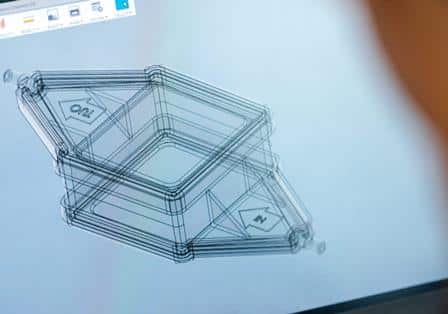Graduate Certificate in Industrial Automation Engineering
Upon completion of this program, you will gain skills and…Read moreGraduate Certificate in Mechanical Engineering
Designed to prepare you for further career development in the…Read moreGraduate Certificate in Civil Engineering: Structural
Upon completion of this program, you will gain skills and…Read more52859WA Graduate Certificate in Renewable Energy Technologies
You will gain skills and knowledge in the latest advanced…Read moreGraduate Certificate in Civil - Railways Infrastructure Engineering
High-level professional and technical development from engineers working with track…Read moreGraduate Certificate in Safety, Risk and Reliability Engineering
Modern engineers face an intriguing set of challenges when tackling…Read moreGraduate Certificate in Programmable Logic Controllers and SCADA
Develop your expertise in Programmable Logic Controllers, and the concepts…Read moreGraduate Certificate in CAD and Computational Techniques
Develop your expertise in Computer Aided design (CAD), analyze problems…Read more
What is the difference between MAC address and IP address?
Both the addresses represent a unique node (computer or any other machine) in the network. Each node in the IP network has both MAC address and IP address which it stores in its own IP Stack.
MAC Address (or Hardware address or Physical Address):
This is the hard coded 48 – bit (6 byte) address, burned into the ROM of the NIC (Network Interface Card). They are expressed as six pairs of hexadecimal digits (12 hexadecimal digits), usually written in one of the following formats. MM:MM:MM:SS:SS:SSMM-MM-MM-SS-SS-SS
The first half (3 bytes –MM:MM:MM) are vendor numbers which is the address of manufacturer (also called the OUI – Organizationally Unique Identifier), and the 2nd half is NIC serial number assigned by the manufacturer to this adapter, or station address. This gives a theoretical 281,474,976,710,656 addresses. This is more than 56,000 MAC addresses for each person on the planet! MAC address works at the data link layer of the OSI model and allows computers to uniquely identify themselves in the network at a relatively lower level.
You can see your MAC address on your Windows machine using ipconfig/all command
IP Address:
IP Address works at the network layer of OSI model (actually the IP layer of TCP/IP model). This is a logical address (and not the embedded hardware address) which is assigned by the Network administrator or Internet service provider. Hence IP address may change each time you connect with the Internet.
An IP address reveals which element on which network it is while the same cannot be extracted from a MAC address. MAC is one of the security methods in WiFi. IP address is only required when a computer need to participate in the data transfer using the IP layer of TCP/IP protocol suite.
Depending on the version of IP Addressing being used, the IP address can be 32 bits long (IPv4) or 128 bits long (IPv6, a new IP addressing scheme designed because, total number of addresses in IPv4 were exhausting).
IP addresses are allocated based on the geographic location of machine. A unique IP address 127.0.0.1 is called local host and is reserved for each computer to be used internally. A packet sent to this address will actually loop back from IP layer only (and will not go to the physical layer at all). This is primarily used for testing purposes where the same machine is acting as both client and server.
IP addresses are allocated based on the geographic location of machine. A unique IP address 127.0.0.1 is called local host and is reserved for each computer to be used internally. A packet sent to this address will actually loop back from IP layer only (and will not go to the physical layer at all). This is primarily used for testing purposes where the same machine is acting as both client and server.
Source: https://www.ritambhara.in/difference-between-mac-address-and-ip-address/
Undergraduate Certificate in Industrial Automation Engineering
Upon completion of this undergraduate certificate, you will have fundamental…Read moreUndergraduate Certificate in Electrical Engineering
Upon completion of this undergraduate certificate, you will have fundamental…Read moreUndergraduate Certificate in Mechanical Engineering
Upon completion of this undergraduate certificate, you will acquire fundamental…Read moreUndergraduate Certificate in Civil Engineering
Civil and structural engineering is one of the oldest forms…Read moreUndergraduate Certificate in Electrical and Electronics Engineering
Upon completion of this undergraduate certificate, you will be able…Read moreUndergraduate Certificate in Industrial Instrumentation and PLC Programming
Upon completion of this undergraduate certificate, you will be able…Read moreUndergraduate Certificate in Engineering Foundations
Upon completion of this undergraduate certificate, you will be able…Read more













